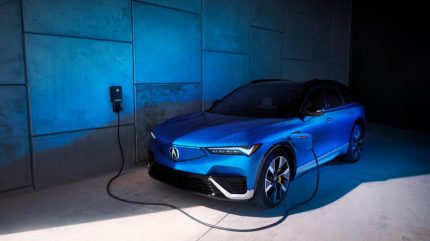
In its fifth annual survey, Japanese supplier Asahi Kasei asked car users in the four major automotive markets about brand loyalty and key motivators for buying electric vehicles (EVs).
The confirmed the trend in recent years – with tightening competition, new manufacturers, and changing customer needs, brand loyalty was wavering worldwide.

Discover B2B Marketing That Performs
Combine business intelligence and editorial excellence to reach engaged professionals across 36 leading media platforms.
More than half of the respondents in Germany and the US planned to change the brand of their next car. Customers in China were remarkably open to switching car brands with 79% indicating they would choose a model from a different manufacturer.
Looking at different age groups, Generation Z respondents (born between 1995 and 2010) showed the lowest degree of brand loyalty indicating the younger the car users were, the less connected they feel to a certain brand.
To reignite brand loyalty, car manufacturers and suppliers must understand the end customers’ needs and find ways to differentiate from the increasing competition.
When asked about the most annoying factors in their current car, car users in all four regions cited “poor gas mileage/fuel consumption”, “not enough storage space,” and “too much noise while driving”. This was also reflected in the main motivation to change the car brand, with a third of respondents in Germany and the US citing “quality aspects” as an important factor. In addition, “running costs” were prevalent motivations in all markets.
In China, the “desire to try something new” was the chief incentive for switching to a different vehicle brand – specifically to premium brands. This coincided with the purchasing influence of “increasing brand image” by established premium car manufacturers, in contrast to volume manufacturers, who were currently losing market share in China.
Since the first survey was conducted in 2020, fuel/power efficiency and running costs had been the most influential factors in the buying process. Notably, the results for all features influencing purchasing choice had been consistent across each survey.
Enhancing battery performance key for convincing potential EV buyers
Stimulated by governmental subsidies, technological improvements and a growing network of charging stations, market shares of pure electric vehicles had been slowly growing in recent years, especially in western markets and in China. 69% of the respondents in China said it was “likely” or “very likely” the next car had a pure electric drive. However, compared to 2020, the willingness to buy an electric vehicle had not significantly changed. While in China and Germany it rose by six percentage points and eight percentage points, respectively, there was a 14 percentage point decrease in the US. The fade out of governmental subsidies and the high cost of electric vehicles were key factors for this consumer sentiment at the end of 2023.
These findings indicated further technological advancements needed to be achieved to convince most car users. In addition to cost aspects, further advancements in battery performance, lifetime, and safety would be needed to improve the acceptance of electric vehicles across all major regions. The main drivers for switching to an electric vehicle differ among the regions: while driving range was the major factor for car users in Germany, 34% of the respondents in the US prioritised battery lifetime. Meanwhile, 34% of non-EV owners in China saw improved safety as a primary consideration in buying an electric vehicle.






